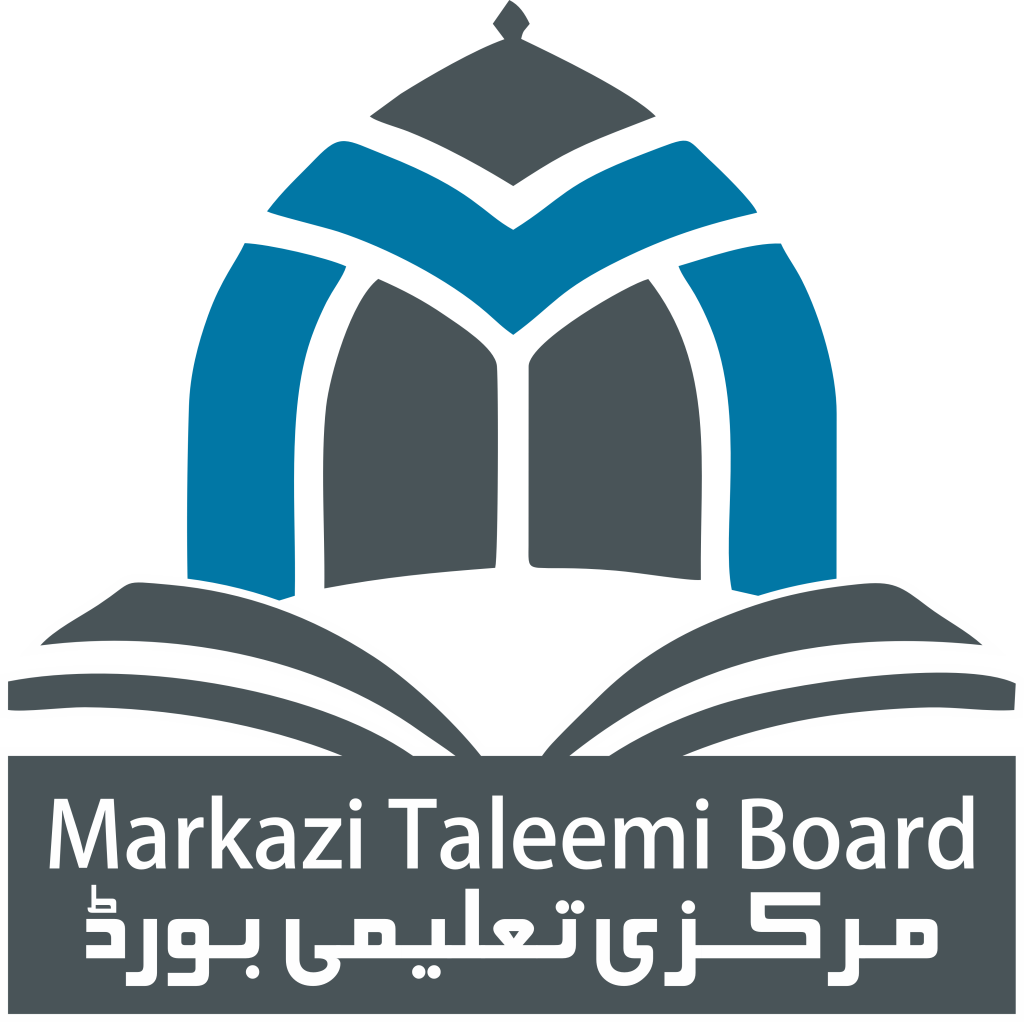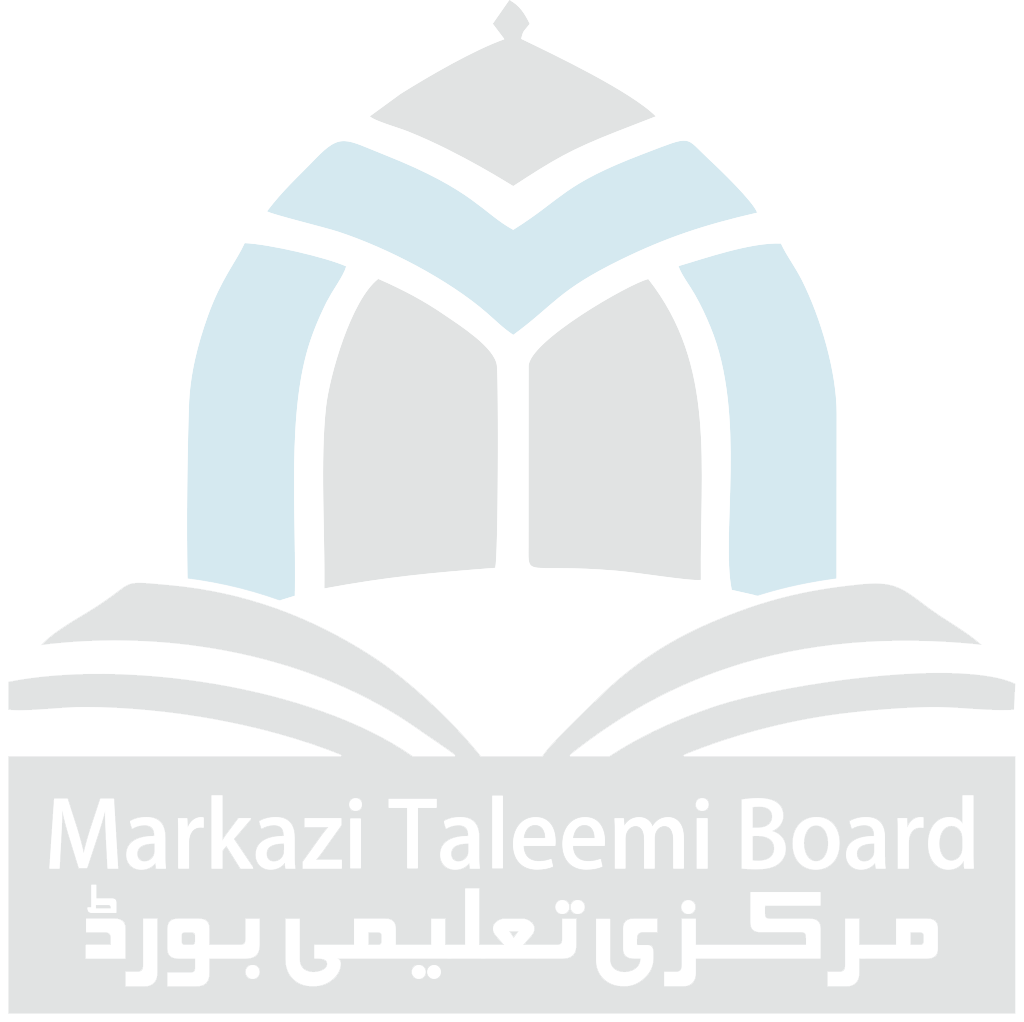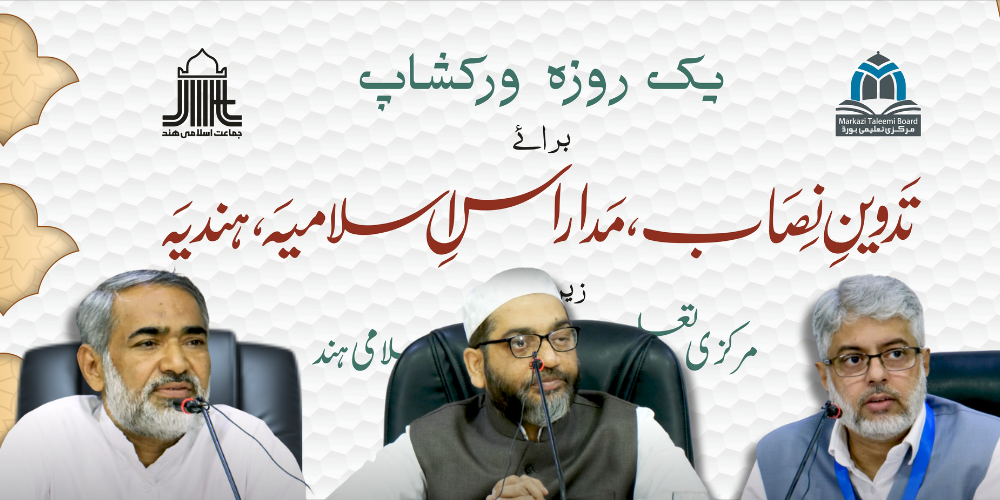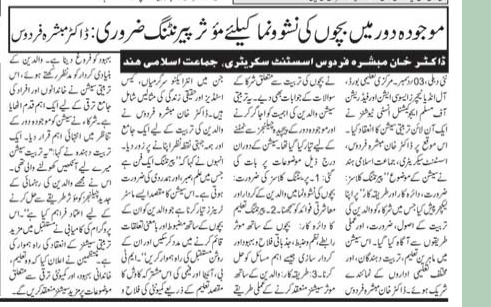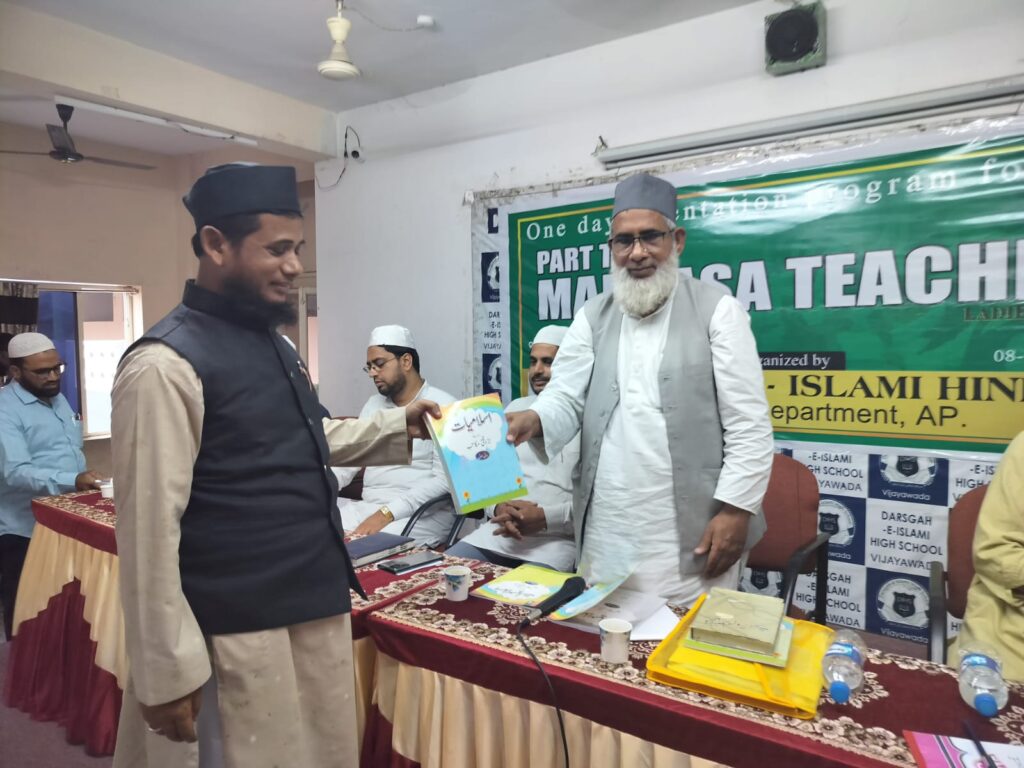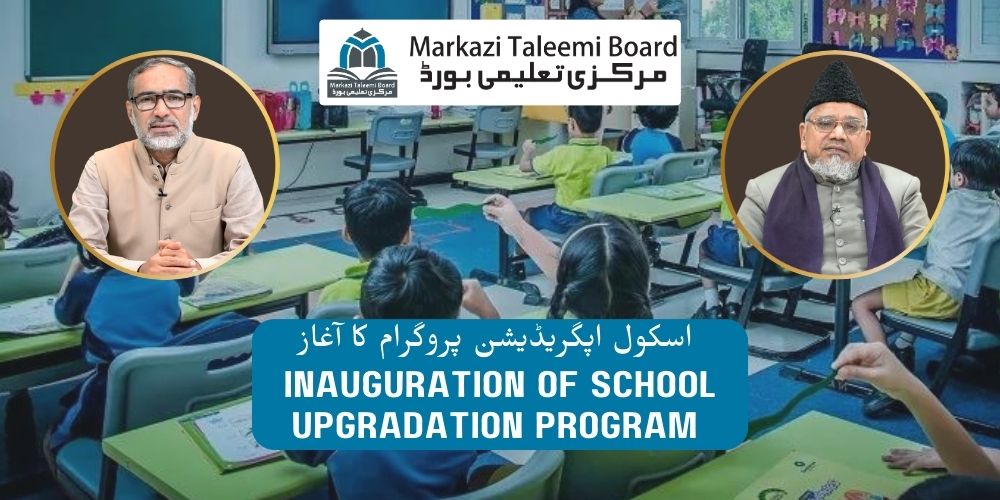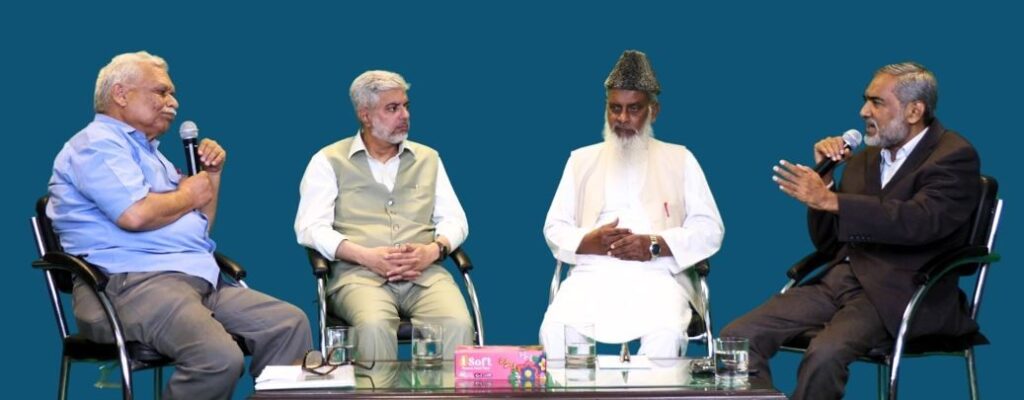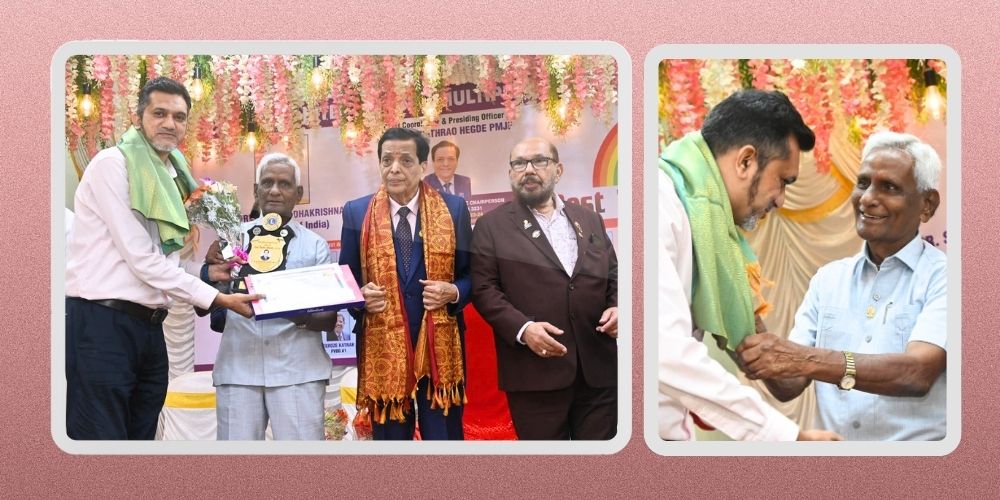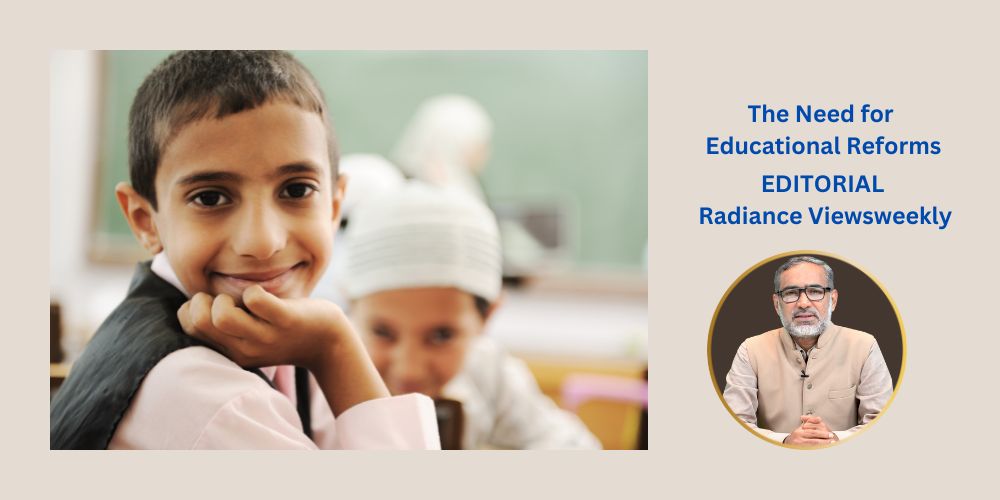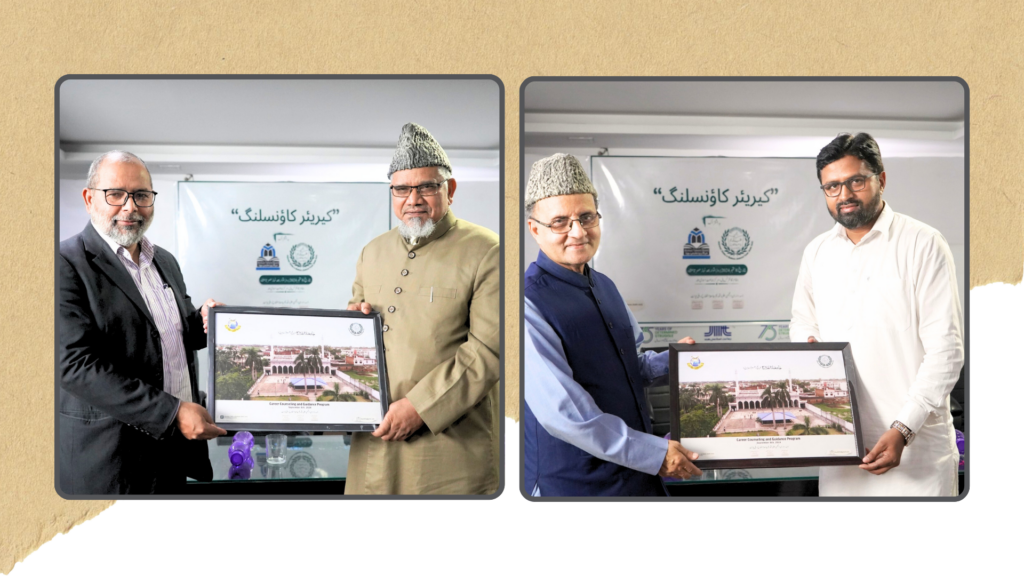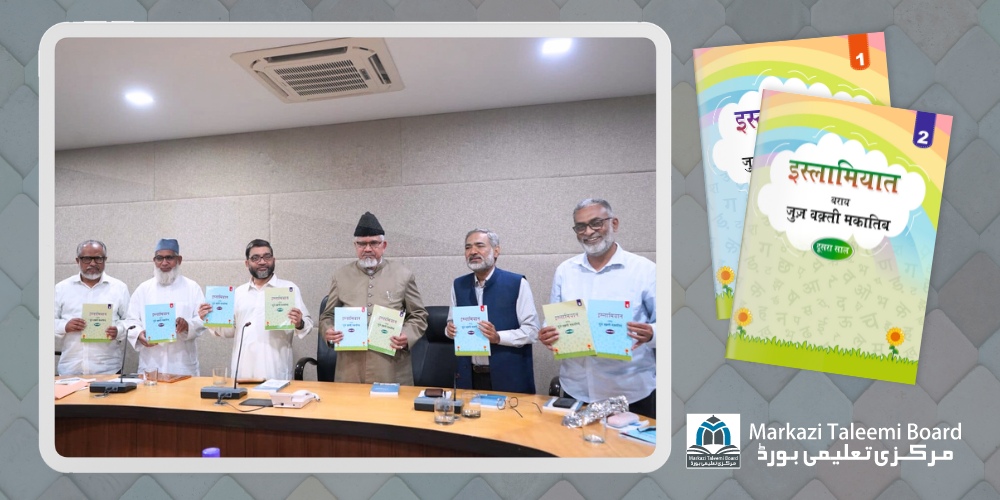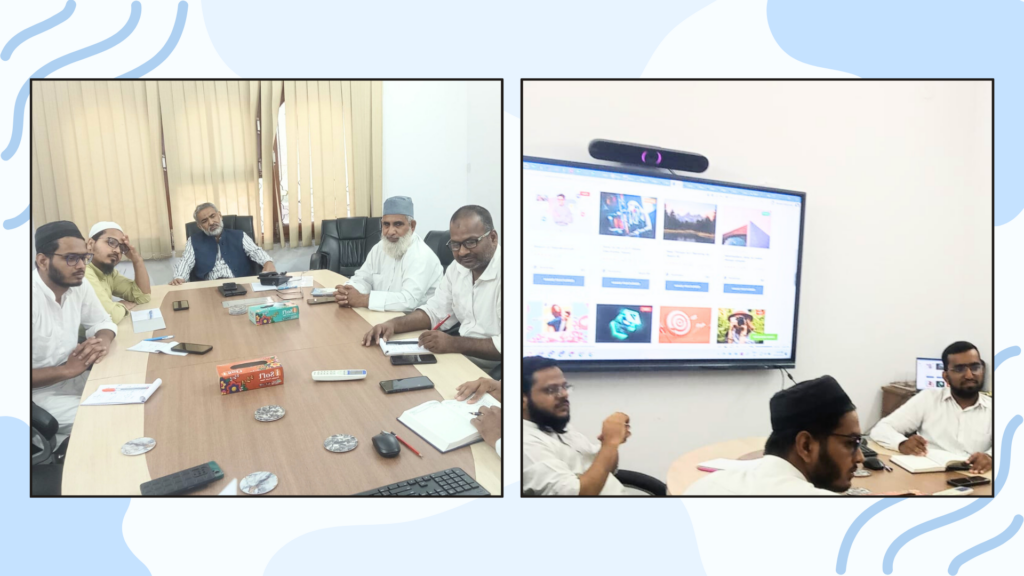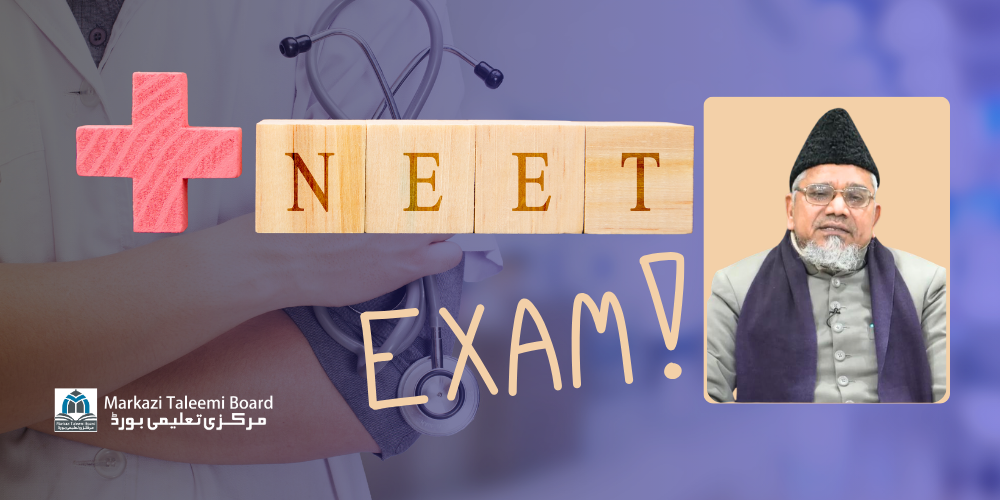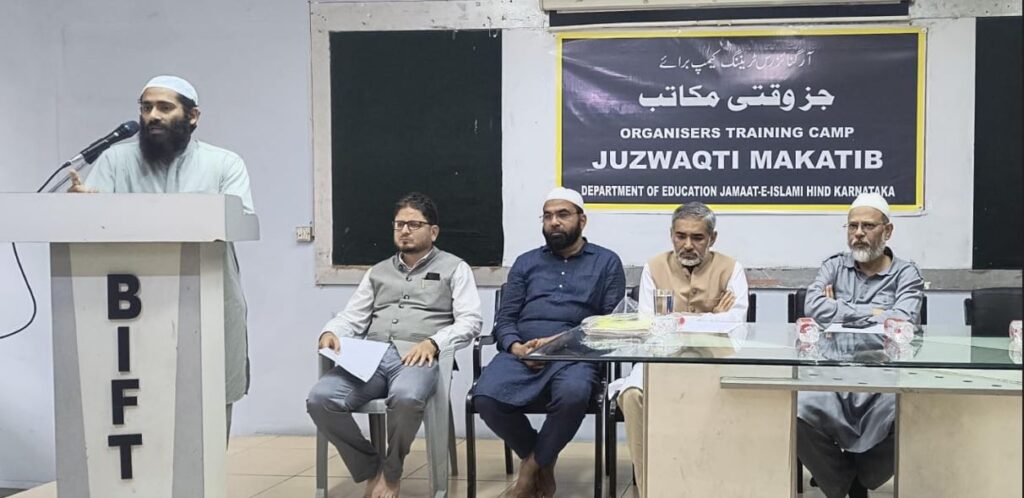NEW DELHI—At a day-long workshop organised by Jamaat-e-Islami Hind’s (JIH) Markazi Taleem Board (MTB) here on 4th May, 2024, scholars and experts from all over India deliberated and discussed about revamping the madrasa curriculum to meet modern needs arising out of changes in knowledge expansion and technological advances.
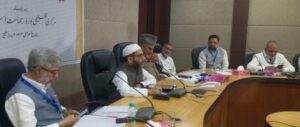
Experts deliberated on the need for Madrasas to adapt to contemporary realities while preserving Islamic teachings, stressing the importance of integrating Madrasa students into mainstream society through bridge courses and cultural awareness programmes.
Align Madrasa education with knowledge growth, technological inventions
In his keynote address, JIH President Syed Sadatullah Husaini, expressing an urgent need to align Islamic education with the accelerating pace of knowledge expansion globally due to technological advances, highlighted three key factors driving the current debate around revising the madrasa curriculum across the globe and in India.
Elaborating on the first factor – the ever-changing world and drastic cultural and social changes – Mr. Husaini informed that while human knowledge doubled roughly every 100 years in 1900, it now takes only 7-8 months for knowledge to double.
“We are moving toward an era where big data is becoming the biggest cultural force. Governments and big decisions are being taken based on algorithms, paving the way for ‘algocracy’, algorithmic regulation, and even ‘algo-dictatorship’. The revolution of augmented reality is controlling human senses, ideas, concepts, and imaginations,” he cautioned.
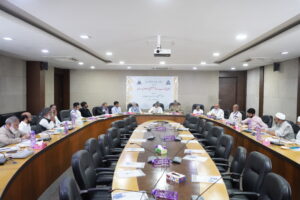
Mr. Husaini emphasized that education is the biggest topic of debate in this situation, with a shift from knowledge-oriented education to skill-oriented, lifelong learning being advocated globally. “Knowledge is ever-changing fast, and various things are becoming irrelevant in months, so the objective of the educational system should be lifelong learning,” he recommended.
The JIH president noted that these cultural changes are closely related to religious knowledge, and Islam can never remain unrelated or aloof from them.
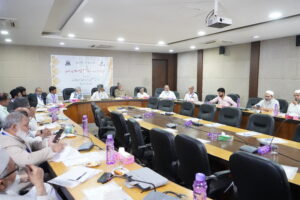
According to Mr. Husaini, the second significant factor is the changing landscape and challenges faced by the country and the Muslim community. He warned that Western forces, armed with the latest technologies and all their might, are attacking Islam, while the communal elements and forces within the country are making efforts to uproot the community’s cultural foundations. “Our community members, especially the youth, are prone to apprehensions, reservations, suspicions, and doubts about the faith,” he added.
The third factor, he added, pertains to legal and political necessities that madrasas are feeling intense pressure from, including the adverse behaviour of national and state governments towards madrasas and the Right to Education Act, as well as a global anti-Islam campaign in the name of ‘modernization of madrasas’.
However, the JIH leader cautioned against making changes in the madrasa system and curriculum solely due to legal and political pressures. These factors can be considered, but the real motive behind the changes should be the first two factors – cultural changes and their consequences, and the changing situation within the country and the community.
Ulema to play vital role in shaping modern society
Emphasizing the need to review the madrasa system and its curriculum, Mr Husaini said that Ulama (Islamic scholars) should play a leading role in modern society. Apart from their routine works of leading prayers, conducting ceremonies, and performing other rituals, he outlined four major roles for Ulema in the contemporary period:
First, he suggested to carry out scholarly and conceptual works to counter the present challenges to Islam, respond to objections raised against Islam, clear doubts and problems of youth, provide guidance, and address the concerns of the new generation prone to atheism, liberalism, and LGBT movements on social media.
Second, he asked the Ulema in every city and district to provide guidance to the community in all spheres of life, instill confidence and courage, and correct the directions of social, political, economic, educational, commercial, trading, cultural, medical, and religious issues and efforts.
Third, he recommended to reform society and promote moral and ethical values in families and communities, making society a practical model of Islamic teachings.
Fourth, he asked Ulema to play a leading role in preaching and conveying the message of Islam among all citizens, acting as ambassadors of Islam. “They (Ulema) should be able to convey the message in English, Hindi, and regional languages, dispel misconceptions about Islam, and respond to objections against Muslims and Islam,” the JIH chief advised.
To fulfill these roles effectively, Mr. Husaini emphasized that Ulema should be well-versed in modern sciences, knowledge, and concepts. He stressed the need to prepare expert Ulema in various fields through specialization, such as Islamic economics, Islamic psychology, and Islamic psychotherapy.
The JIH leader also suggested considering various experiments regarding imparting Islamic religious education across the world, notably the Indonesian and Malaysian madrasa systems known as Pesantren and Pondok , respectively, as well as models from West Asian countries where religious and modern education are integrated.
Need for spiritual revival through madrasas
In his opening remarks, Markazi Taleemi Board (MTB) National Secretary Syed Tanveer Ahmed called for addressing the vacuum created over the past decades and redefining the role of madrasas in contemporary society. He underlined the need for spiritual revival due to the dominance of Western education and its impact on spiritual and behavioural aspects.
Dr. Salman Asad, the head of Jamiat-us-Salihat in Rampur and associated with the Delhi Waqf Board tribunal, spoke about the present status of madrasas in the country and major problems with the contemporary Islamic education system in India. After surveying and visiting several madrasas in India and various countries, he identified six major issues such as “lack of attention to personality development, granting ‘Aalmiyat’ (Islamic scholar) degrees to underage and immature students, curriculum primarily focused on Fiqah (Islamic jurisprudence), Arabic not being taught as a language, lack of implementing modern pedagogy or scientific methods of teaching and research, lack of connection with employment, jobs, and professions.”
Focus on personality development of madrasa students
Addressing these issues, Dr. Asad suggested making personality development a compulsory subject, with the curriculum designed in light of the life of Prophet Muhammad (PBUH). He proposed granting the prestigious ‘Aalmiyat’ degree after completing 12+3 years of education, similar to modern graduation degrees, to avoid conferring the respected title of ‘Aalim’ (Islamic scholar) on underage, inexperienced, and immature students.
Regarding the curriculum’s excessive focus on Islamic jurisprudence, Dr. Asad recommended making it a required subject (‘ilm matlub) but not the main purpose (‘ilm maqsud’) of the course. While teaching Fiqah, he suggested emphasizing the objectives of Sharia (‘Maqasid Shariah’) and comparative studies of different schools of thought (‘Fiqh Muqarin’).
On the pedagogical front, Dr. Asad suggested giving adequate space to research and scientific study in the curriculum, adopting modern teaching methods and pedagogy along with the usage of modern technologies, and conducting teacher training in madrasas.
Teach Arabic as a language to madrasa students
To address the lack of Arabic language proficiency, he proposed teaching Arabic as a language to enable students to directly study the Quran and Hadith in Arabic. He also suggested including Hindi, English, and other interfaith studies in the curriculum.
Link madrasa education with jobs
Linking madrasa education with employment, jobs, and modern skills and professions was another suggestion to connect students with livelihoods. Dr. Asad noted that according to a 2023 report, about Rs. 65,000 crores of Zakat (obligatory alms in Islam) is collected, while Islamic endowments (Waqf) assets worth around Rs. 16 lakh crores are spread across India. These resources should be utilized properly for running Islamic education institutions, he added.
An expert from Maharashtra, Dr. Badrul Islam, delved into the basic principles of curriculum design, defining the comprehensive meaning of curriculum, its objectives, components, and the basis of curriculum. He highlighted the differences between curriculum and syllabus and discussed various principles of curriculum design, including student-centred, activity-centred, social-centred, future-centred, and innovative or constructive-centred principles. He also mentioned renowned models of curriculum design, such as the Hilda Taba model, post-positivist model, necessity-centred model, and future-centred model.
Challenges before madrasa education
Speaking on the topic of challenges and opportunities in the changing scenario of the country, former MTB chairman and heads of various educational institutions, Mujtaba Farooq, discussed the present challenges faced by madrasa education, including the current ruling dispensation, communal elements, and various laws and acts enacted recently. However, he encouraged participants by stating that challenges come with opportunities, as different sections of society are ready to work jointly to counter these challenges.
To address these issues, Farooq suggested practical solutions, including forming a coordination forum of all madrasas, establishing a madrasa board, and fostering good coordination with other minorities and backward communities and groups. These measures, he argued, would not only mitigate legal, political, and social challenges but also ensure the smooth operation of religious educational institutions in India.
Presiding over the first session on curriculum development, Maulana Tahir Madani, a renowned Islamic scholar and former rector of the Islamic seminary Jamiatul Falah in Azamgarh, elucidated the core objectives of Madrasas: safeguarding and disseminating Islam.
Need to include modern subjects in madrasa curriculum
Recognizing the need for modernization, Maulana Madani advocated for the inclusion of contemporary subjects and sciences in Madrasa curricula. He emphasized the importance of focusing on making students experts in languages, conducting regular teacher training programmes, launching short-term ‘Aalmiyat’ (Islamic scholar) courses for modern-educated students, and introducing online ‘Aalmiyat’ courses.
Necessity of a central madrasa board
Maulana Madani also advocated for the formation of a national-level central board of madrasas to resolve their problems, as well as the introduction of skill training, professional skills courses, and medical-related courses. Besides, he also stressed the necessity of creating and developing resources for these institutions.
Addressing the legal hurdles faced by madrasas, Maulana Madani emphasized the need for concerted efforts to obtain mandatory recognition by fulfilling all required norms and formalities.
Redesign madras system
Presiding over a session on suggestions and feedback regarding the curriculum, JIH Vice President and MTB Chairman, Prof. Salim Engineer, solicited proposals for curriculum enhancements, advocating for collaboration with prominent educational institutions and experts. Prof. Salim underscored the imperative of restructuring the Madrasa system to align with contemporary needs and promote problem-solving aptitudes and innovation among students.
Speaking on the need to redesign and restructure the ‘madrasa system’ in light of contemporary situations and modern needs, Prof. Salim emphasized the importance of undertaking need-based actions that would be more productive and yield better outcomes. He highlighted the pressing need to promote the scientific method of research in madrasas and foster problem-solving aptitudes, while also drawing attention to new creations and innovations among madrasa students.
Referring to modern practices in universities while designing curricula, Prof. Engineer stated that programme objectives (POs) are first decided, followed by the determination of course objectives, and subsequently, subject objectives are established, ensuring that all three elements are aligned and supportive of one another. He noted that the achievement of these objectives is evaluated through the examination and assessment system.
Elevate level of excellence in madrasas
Prof. Salim also suggested introducing lecture-less courses and project-based courses in madrasas. He advocated for elevating madrasas to the level of excellence, making them modern and up-to-date with contemporary standards. Additionally, he proposed designing a model course based on basic Islamic teachings for students in the 12th class of modern educational institutions.
The JIH Vice President also recommended redesigning the Islamic course curriculum, with the completion of the 12th grade being the minimum eligibility requirement. He advocated for the introduction of a bridge course to facilitate the transition of madrasa students into the mainstream education system. Prof. Salim also suggested making students aware of Indian society and religions, emphasizing that conveying the message of Islam to the broader society is the responsibility of every Muslim. He emphasized the promotion of scientific research methodologies within madrasas to instill critical thinking and problem-solving skills.
The workshop featured with noted educationists, scholars, and experts from prestigious institutions such as Jamiatul Falah, Darul Uloom Deoband, and Aligarh Muslim University. Maulana Yahya Nomani, Dr Naseem, Maulana Zaki Madani, Dr Mohiuddin Ghazi , Dr. Zeeshan Ahmed Misbahi, Dr. Ataur Rahman Falahi, Maulana Inamullah Islahi, Dr Ashhad Jamal Nadvi, were among the distinguished personalities sharing insights and experiences.
